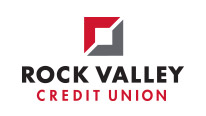National Consumer Protection Week
Avoid scams and make smart money decisions
Financial education is central to our mission. At Rock Valley Credit Union, we are proud to support each step of your financial journey - and we also want to help prevent any potential hiccups along the way. This week, we join the Federal Trade Commission (FTC) and hundreds of other organizations throughout the country to celebrate National Consumer Protection Week (NCPW). For the 23rd straight year, the Federal Trade Commission has spearheaded NCPW efforts to educate and help Americans understand their rights as consumers and make better-informed decisions about their money. To join in this nationwide movement, we share with you the common signs of a scam, how to avoid a scam, and to encourage you to spread the word to family, friends and colleagues.
Common Signs of a Scam
According to the FTC, there are four main signs to be aware of when it comes to scams.
- Scammers pretend: They will call you directly and introduce themselves as a representative from an organization you know - such as a local utility company, charity, the IRS or even the Social Security Administration - and then ask for money.
- Scammers use scare tactics: From a family member experiencing an emergency to saying you won money in a lottery or sweepstakes, Scammers will get personal with you to get your money!
- Scammers will make you feel rushed: They might threaten to sue you, deport you, take away your driver's license or say your computer is about to be hacked. They won't give you any time to think. You will feel in a hurry to make a decision.
- Scammers are specific about payment: Often, a scammer will demand payment in the form of a gift card, money transfer or credit card number.
How to Avoid a Scam
By following these simple tips, you can significantly reduce your chances of falling victim to a scam:
- Block unwanted calls or texts: Visit the FTC for steps on how to block those calls and text messages.
- Do not give our your personal or financial information: And always remember, legitimate organizations will NOT call, email or text asking for your social security, bank account or credit card numbers.
- Don't allow anyone to pressure or rush you: Any legitimate business will give you the time you need to make a decision.
- Be aware of how you are asked to pay: Never give money to a person who tells you to pay using a gift card or a money transfer service. It's a scam.
- Enlist a person you trust: Talking through your experience with someone can help you realize it was a scam. If you need someone to talk to, contact our Member Contact Center at (815) 282-0300. We are here to help!
Today, there are many ways in which scammers are taking advantage of the in-demand coronavirus vaccine. Below are a few helpful tips to keep your money and identity safe. You can always visit the FTC website for additional details and the most up-to-date information on scams.
These are all associated with COVID-19 Vaccine scams:
- To get the vaccine, you cannot pay to get your name on a waiting list.
- You cannot pay to get early access to any vaccine.
- No one will call, text or email you about the COVID-19 vaccine and ask for your Social Security, bank account or credit card numbers.
How to Report a Scam
If you or someone you love has fallen victim to a scam, report it immediately to the Federal Trade Commission by clicking here.
We encourage you to spread the word to your family, friends and colleagues about National Consumer Protection Week! You can share this blog or direct them to the FTC's lineup of online events scheduled throughout the week. If you need help, further guidance or have questions, call our Member Contact Center at (815) 282-0300 or click here to schedule an appointment.


